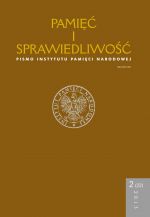Historiografia serbska i chorwacka poświęcona polityce zagranicznej Jugosławii w okresie zimnej wojny
Serbian and Croatian historiography about Yugoslav foreign policy during the Cold War
Author(s): Mateusz SokulskiSubject(s): History, Political history, Social history, Recent History (1900 till today), Post-War period (1950 - 1989)
Published by: Instytut Pamięci Narodowej
Keywords: Yugoslavia; the Cold War; the West; the Eastern Bloc; the Third World
Summary/Abstract: Specific situation of Yugoslavia – the communist state not belonging neither to the West nor to the Eastern Block, active and dexterous in its foreign policy-meets interest of Serbian and Croatian historians. The collapse of Yugoslavia in 90s evoked focus mainly on the national issues amongst academics from both states. At the end of 90s, researchers began to survey Yugoslav foreign policy and position of Tito’s state in the Cold War constellation. Nowadays, both in Croatia and Serbia interest of historians is focused on such problems as Yugoslav policy towards the Third World as a leading state of the non-aligned movement, American policy towards Yugoslavia and Tito’s oscillation in his attitude towards both blocks. Exceptof the few very important monographs, documents’ collections and articles about relations between Yugoslavia and the Eastern Block, especially treating first decade after the World War II, this field still needs to be the object of survey. There is also a few relevant studies about cultural impact of the West and the communist bloc in Yugoslavia, reflecting political and ideological concerns of the divided world and their influence in Tito’s state. Surveys about Yugoslav position in international relations, mainly carried out in Serbia, have not exceeded years 1945–1970 and there is still need to research Cold War problematic from the Balkan perspective.
Journal: Pamięć i Sprawiedliwość.
- Issue Year: 22/2013
- Issue No: 2
- Page Range: 291-300
- Page Count: 10
- Language: Polish

